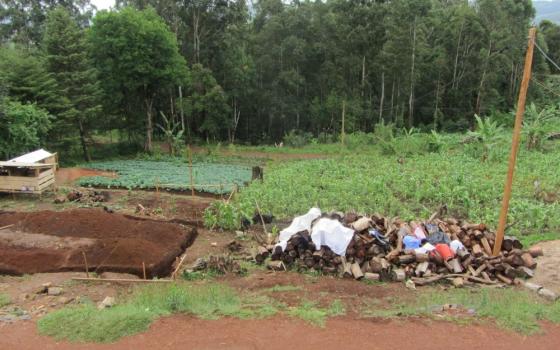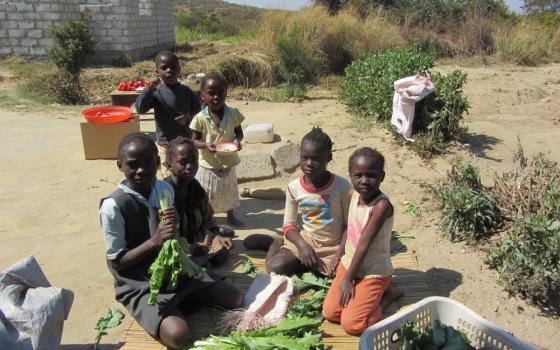Dust From Our Eyes: An Unblinkered Look at Africa is one of my favorite books about Africa. Journalist Joan Baxter, who spent 25 years in West Africa, challenges us to put aside a common image of Africa as the “Dark Continent” and begin seeing it as a continent of new light and creativity.
This is not easy because a majority of images we see and the news we hear about Africa paints negative myths: stories of poverty, hunger, over-population, HIV/AIDS, human rights violations, religious conflicts and political crises. Joan shifts our attention to its many wonders. Africa is a continent of at least 50 countries with a combined population of over a billion people. It boasts magnificent diversity of breath-taking geographies, climates and animals and, more importantly, a variety of tribes of people who speak their own native languages, but European and American ones as well. Technologies are transforming systems for health and education, and cell phones are at the center of it all.
Farmers are using cell phones to their advantage to find markets, seed prices, and to learn new techniques that will help them contribute to their family’s and country’s food security. We often hear that there isn’t enough food in Africa, and in some places because of years of drought and war, this is true, but in most African countries there are many new programs to increase skills in agriculture. One of the most interesting that I visited a few years ago was in Uganda: Kuklika Farms. Sisters participating in this program learn land development and conservation to provide food for their own communities – and to mentor their neighbors as well.
They are learning how to produce and use natural fertilizers rather than using manufactured chemical ones that destroy the soil. They concentrate on the importance of plant diversity for soil conservation and better nutrition. Even though some agriculture experts claim that natural fertilizer use may only be beneficial for small production and will not take care of hunger around the world, local farmers counter with: “We only want to feed ourselves, not the world.”
Food security is complex because it not only involves methods of production but also needs adequate infrastructure for distribution. Families in towns and cities can be kept hungry by impassable roads that keep marketable food locked in the fields. High fuel costs for vehicles and even the cost of purchasing trucks inhibit food distribution. These are long term problems not easily solved, so sisters creatively find ways to address food production even in cities where families do not have land. Here they cultivate gunny sack gardens. The sacks are filled with soil, then poked with holes for planting seeds and watering. They also build simple hothouses for kitchen gardens.
I attended a telephone discussion recently about the absence of the church involvement in food security development. As usual, the participants were not aware that the church is, in fact, involved. Sisters are on the front line in their usual unobtrusive way leading the church into this area of peoples’ lives. The Global Sisters Report will be bringing these stories to light.
[Joyce Meyer, PBVM, is the international liaison to women religious for Global Sisters Report.]


